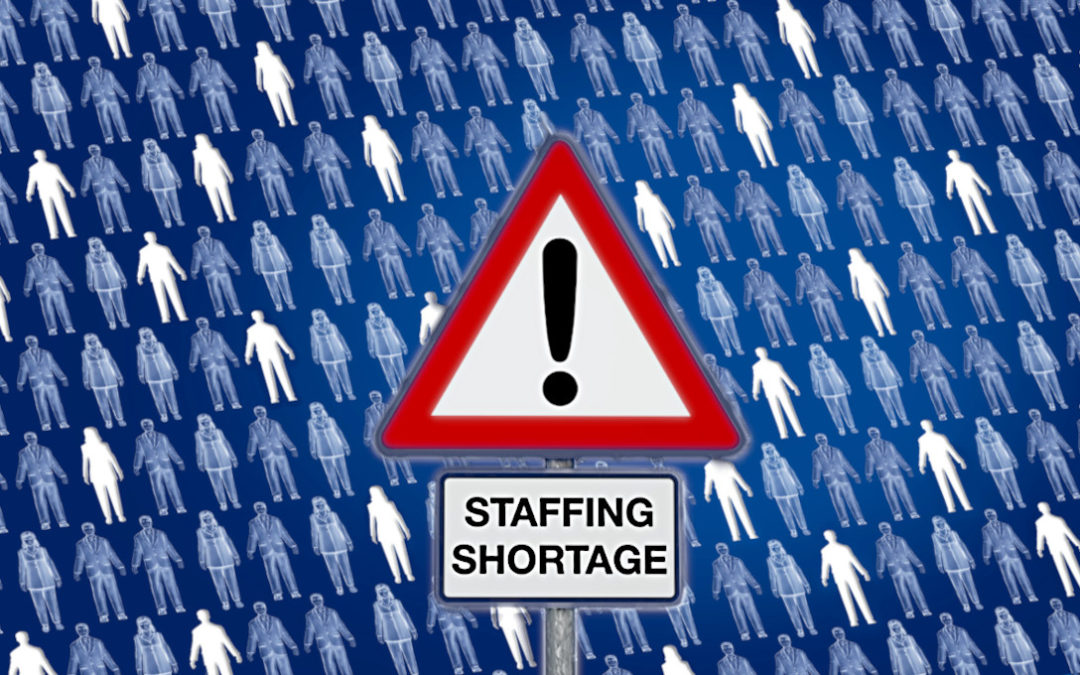Today’s healthcare landscape has been riddled with hardship and systemic shifts. Large-scale downward trends were highlighted by the COVID-19 crisis, but originated beforehand and will require massive effort to reverse.
Unfortunately, the brunt of these inefficiencies and problems falls disproportionately on certain portions of the medical professional family. One primary example of this is the way problems in healthcare affect nurses. The rising stresses and demands on nursing professionals have initiated a drastic nurse staffing crisis, emptying the nursing ranks across the country, and creating significant employment shortages.
According to the Bureau of Labor Statistics, vacant nursing positions across the United States hover at almost 200,000 openings each year. A number of problems are contributing to this reality and need to be resolved.
1. Nurses Are Often Unreasonably Responsible for the Weight of Patient Advocacy
Historically, nurses have often taken the lion’s share of responsibility for patient advocacy. This can refer to calling for fair and adequate treatment, helping other medical professionals understand the particulars of patient cases and needs, mediating and safeguarding for vulnerable patients, and more.
However, this burden can cause a significant amount of stress, especially when a nurse feels that they are advocating for patients’ needs in the face of apathy or even resistance from fellow medical professionals who might have differing priorities.
2. COVID-19 Requirements Drove Many Nurses Out the Door
COVID-19 requirements and vaccine mandates created huge turbulence for nurses across the medical landscape. Many that disagreed with requirements or how they were put into effect left the workforce. This created another large drain on an already depleted nursing population.
3. Workplace Stress is Compounded for Nurses – It Comes from Both Sides
Nurses often liaise between patients (and their friends or families) and fellow medical staff. When tensions rise; stressful or difficult situations bring out the worst in people; or priorities differ between stakeholders in a patient’s care, nurses can find themselves caught in the middle.
They often have to diffuse the stress exuded by patients, family, partners, and friends as well as helping navigate the stress and difficulties their fellow medical personnel experience. It’s an incredibly difficult job.
4. Compensation is a Never-Ending Battle
Because nursing roles vary drastically by amount of compensation and type of contract, nurses don’t often enjoy the job security that other medical professionals do.
5. Current Inefficiencies of Healthcare System Fall More Heavily on Nurses
The nature of nursing roles means that when the medical field experiences turbulence or systemic problems, that uncertainty or strain inordinately affects nurses.
6. The Problem is Self-Propelling: Nurse Shortages Beget More Nursing Shortages
Burnout and the long-term stress of overwork is one of the most critical problems affecting the nursing population. When some nurses quit their jobs or leave a medical facility, or when open positions remain vacant for long periods of time, the existing workload falls on the nurses that remain.
This compounds the stress, overwork, and impossible expectations that remaining nurses experience, making it more likely that those remaining nurses will succumb to the stress as well and leave the workforce.
7. Pandemic’s Effects on Medical Training
COVID-19 created staggering difficulties for medical trainees across the board. Many nursing students that were in school during the height of the pandemic would have lost out on valuable class time or training weren’t able to complete parts of their coursework, or were called up early into the workforce to cover drastic needs and shortages. Many of these new nurses entered employment feeling unprepared and more susceptible to intense stress and burnout, thus ending up more likely to leave the field.
8. Average Nursing Age Looms Over Staffing Projections
The average age of nurses across the country was 50 years old in 2018. The current number of new nurses entering the workforce will not replace the large number of nursing professionals quickly reaching retirement age. If these trends do not change, projections are dire for how nursing shortages will increase over the next decade.
How to Correct These Issues
These large-scale realities are significant and systemic. It will take significant, intentional action to correct course and make the nursing profession more accessible and sustainable. If the healthcare system can take corrective action to lessen the stresses that fall on nurses, make their jobs more secure, and help spread the responsibilities nurses currently hold more collaboratively amongst other medical professionals, we can reverse these trends.
- 8 Problems Driving the Nurse Staffing Crisis - May 18, 2022



